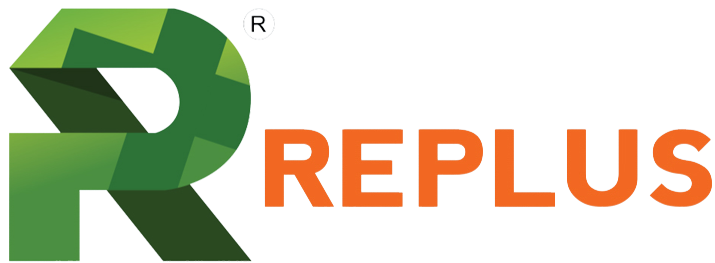What is Information Overload?

Information overload is a situation where you’re bombarded with more information than you can effectively process. It’s like trying to drink from a fire hose – you just can’t keep up. In today’s digital age, we’re constantly exposed to a vast amount of information from the internet, social media, email, news, and more. This constant influx can be overwhelming and lead to several negative consequences.
Common Types of Information Overload in the Workplace
Here are four types of Information overload that employees usually get from the Gartner Survey. Referring to this can help you understand clearly your problems and solve them easily.
- Redundant: Over half (57%) of employees and managers report getting bombarded with repetitive messages on similar topics.
- Off-Target: Nearly half (47%) struggle with irrelevant communications that don’t connect to their daily tasks.
- Time-Consuming: A significant portion (38%) spends extra effort just to stay on top of the sheer volume of information.
- Confusing: A third (33%) encounter inconsistent or conflicting messages, creating uncertainty.

Moreover, other ways can make you overloaded with information when have to learn or receive plenty of new things.
- Fast Track: Diving headfirst into presentations and reports can quickly lead to information overload. Imagine being in a crucial meeting, suddenly overwhelmed and unable to absorb another thing.
- Slow Burn: Even a gradual approach with constant information intake, like report skimming and daily briefings, can leave you feeling mentally drained by the end of the day.
- Both scenarios can be frustrating, but the key is recognizing the feeling of being overwhelmed – that’s information overload, a common experience for new hires. Left unmanaged, this “information intoxication” can hurt your performance and even lead to stress-related issues like headaches, irritability, sleep problems, and burnout.
The Causes of Information Overload in Work Space Environment
The reasons causing Information overload often come from other aspects of your life and we can unpredict. Here are common roots that could influence your Information overload.
The Information Age

- Information explosion: The internet and digital technologies have led to exponential growth in information creation. We have access to more data than ever before.
- 24/7 connectivity: With smartphones and constant internet access, we’re never truly disconnected from the information flow.
- Pressure to be informed: There’s a societal pressure to stay up-to-date on current events and trends, leading to information overload.
Information Management Issues
- Information overload vs. information poverty: While we have a vast amount of information, finding the specific details we need can be difficult.
- Lack of filtering: There’s often little to no filtering of information online, leading to a mix of reliable and unreliable sources.
- Irrelevance and redundancy: A lot of information online is irrelevant or redundant, adding to the noise and making it harder to find what’s important.
6 Tips Work Smarter Not Harder: Optimize Productivity and Career
Our Cognitive Limits
- Limited attention span: Humans have a naturally limited attention span, which shrinks further with information overload.
- Difficulty processing information: Our brains can only process information at a certain rate.
- Decision fatigue: The constant need to make choices about what information to consume can be mentally draining.
The Impact of Information Overload
Information overload is a major issue in today’s world. We’re constantly bombarded with news, social media updates, emails, and more. This constant influx of information can have a significant negative impact.
Mental Health

- Stress and Anxiety: The pressure to keep up with everything can be overwhelming, leading to chronic stress and anxiety.
- Decision Fatigue: With so many options and information to consider, making even simple decisions can become exhausting.
- Reduced Focus and Concentration: The constant barrage of information can make it difficult to focus on any one task for a sustained period.
Productivity
Multitasking Overload: Trying to juggle multiple information streams at once can actually decrease productivity and increase errors.
Procrastination: Feeling overwhelmed by information can lead to procrastination as we avoid tackling complex tasks.
Reduced Creativity: The constant stimulation can hinder our ability to think deeply and creatively.
Overall Well-being

Sleep Problems: The blue light emitted from screens and the stimulating nature of information can disrupt sleep patterns.
Feeling of Isolation: Ironically, information overload can create a sense of isolation as we struggle to connect with the information that truly matters.
Reduced Capacity for Deep Thinking: Constant information bombardment can make it difficult to engage in deep reflection and critical thinking.
How to Prevent Information Overload
Information overload can be a real burden, but there are steps you can take to prevent it from happening. Here are some strategies:
Be mindful of what you consume
- Be choosy about your information sources: Not all information is created equal. Stick to reputable sources and avoid getting sucked into clickbait or endless scrolling.
- Limit social media: Social media can be a huge source of information overload. Consider scheduling specific times to check social media, or take breaks from it altogether.
Will robots take my job? The impact of technology on the future of work
Manage the information flow

- Unsubscribe from unnecessary notifications: Turn off email and social media notifications that constantly ping you with updates.
- Schedule information intake: Set aside specific times to check emails, news, or social media. This will help you stay focused and avoid getting pulled in different directions.
- Use information curation tools: There are tools available that can help you filter information and prioritize what’s important. These can be apps or browser extensions that aggregate news from your preferred sources.
Optimize your information processing
- Focus on what’s important: Before consuming information, ask yourself if it’s relevant to your needs or goals.
- Take breaks and de-clutter your mind: Give yourself time to process information and avoid constantly bombarding your brain with new stuff. Meditation or spending time in nature can be helpful for this.
- Learn to skim and scan: Not everything needs to be read in depth. Learn to quickly identify the key points of an article or message.
Thank you for taking the time to explore the ever-present challenge of information overload. By recognizing the signs and implementing the strategies discussed, you can reclaim control of your information intake and navigate the digital world with greater focus and clarity. Remember, knowledge is power, but so is the ability to curate it effectively.


